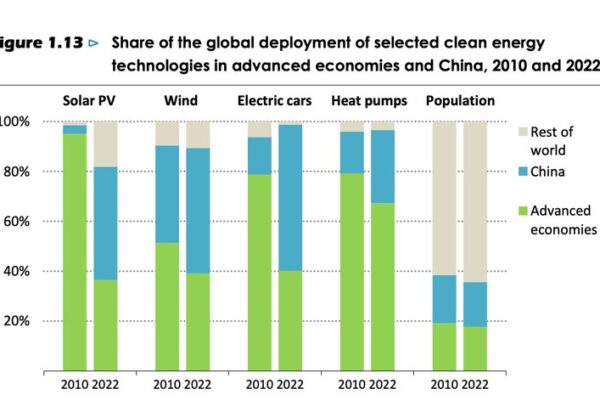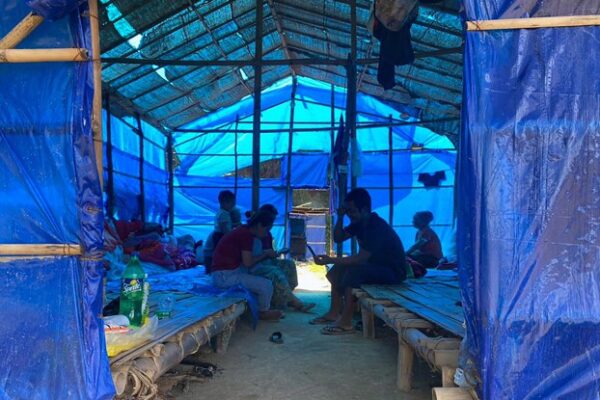
Clean energy growth is keeping the 1.5 C target alive, IEA says
Significant growth in clean energy technologies, like solar panels and electric vehicles, has helped keep viable the target to limit global warming to 1.5 degrees Celsius, the International Energy Agency said in a new report on Tuesday. However, it warned that China and advanced economies must intensify their climate commitments to reach the goal on time. According to the 2015 Paris Agreement, the world must limit global warming to 1.5 C above pre-industrial temperatures by the end of this century to tackle the urgent threats posed by climate change, including rising sea levels, extreme weather events, and disruptions to ecosystems. Global investment needs to escalate to US$4.5 trillion annually from the next decade, a leap from the anticipated $1.8 trillion in 2023, the International Energy Agency (IEA) said in its updated report on the “Net Zero Emissions by 2050 Scenario.” For the world to adhere to the Paris climate goal, wealthy nations are urged to achieve carbon neutrality by 2045, five years ahead of previous targets. China, the world’s top carbon emitter, is called on to expedite its timeline by a decade to 2050. The report comes as temperatures reached unprecedented highs this year, with last month declared the warmest August globally and warmer than all other months except July 2023, when the record was broken with the global average temperature at 16.95 C (62.51 F), according to the World Meteorological Organization. Fossil fuel is peaking, but needs to decrease more The Paris-based IEA said the past two years have witnessed a 40% surge in clean energy investments, with solar energy and electric vehicles projected to contribute to a third of emissions cuts by 2030. “Our analysis showed that even if no new climate policies are put in place by the governments … three fossil fuels, coal, oil, and natural gas, may well peak before 2030 within this decade,” IEA Executive Director Fatih Birol told a virtual press conference on Tuesday. He added that this is a significant development due to a robust and spectacular increase in clean energy technologies and the changes in the economic structure of key consuming countries. “Solar [has] become the king of electricity markets. The old king – coal – is over; now solar is the new king. Not only for climate reasons, but because it is cheap, the cost is coming down.” He also said that one in 25 cars sold worldwide two years ago was electric, whereas this year it has increased to one in five and is growing in key markets. “So the growth coming from solar, electric cars, other renewable technologies are very, very impressive, and they will play an extremely important role in bringing down the need for fossil fuels in the next years,” he said. Birol also said that to reach the 1.5 degrees target, the use of fossil fuels must decline close to 25% between now and 2030. China’s coal expansion and 1.5 can’t go hand in hand The report said China’s 2030 carbon emissions projection is expected to be more than a third of the 2015 scenario due to the substantial solar and wind power growth. Less than 10% of China’s electricity production comes from renewable sources, but Beijing has floated a plan to increase it to 25% by 2030. An infographic showing the deployment of clean energy technologies that remains highly concentrated in China and advanced economies. Credit: IEA According to the IEA report, the Chinese government in 2016 had aimed for EVs to be 12% of total vehicle sales in 2020. The target has been revised to 20% for 2025, bolstered by significant subsidies and tax breaks. However, all these new developments and climate change impacts, including heat waves and drought, have put tremendous pressure on China’s electricity. From 2015 to 2022, power production surged over 6% annually, according to the IEA. Despite the vast growth of renewables, the demand was unmet, leading to a spike in coal-powered electricity generation. Consequently, China’s global contribution to coal-based electricity grew by 10 percentage points during this timeframe. Answering a question by Radio Free Asia on China, Birol said that according to the IEA’s analysis, China is “number one” in solar, wind, electric cars, additional new nuclear capacity, and hydropower, “in all clean energy sources,” as well as a leader in clean energy investments. “But at the same time, coal – the fuel with the most carbon content – is still having a dominant position in the Chinese energy mix,” Birol said. “When we look at the global picture, we see that there is no room for unabated new coal plants if we want to stick to our 1.5 degrees target.” Edited by Mike Firn and Elaine Chan.






